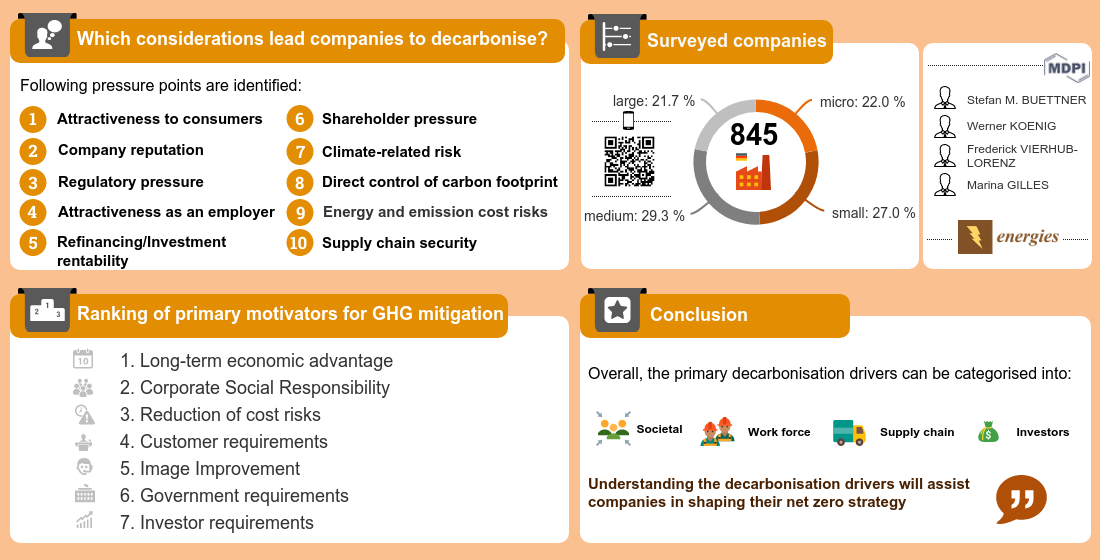Already more than 140 countries consider or have pledged to reach net-zero emission targets by 2050 or earlier and the share of global emissions falling into an emission pricing scheme has steeply increased over the past three years. Even where there are no direct implications for industry (yet), there is a series of subtle pressure points driving an increasing number of companies across the globe to work towards climate neutrality and pledging ambitious emission reduction goals. This article sheds light on the pressure points, the subtle triggers, the underlying considerations as well as the hoped-for benefits for industrial companies from achieving net-zero emissions. The observations and ideas presented in this paper are derived from quantitative data obtained via the Energy Efficiency Index of German Industry (EEI) and qualitative data. Not only societal, work force, supply chain and investor expectations play a large role, but also many strategic considerations which have the potential to make the company more resilient and profitable, particularly in time of crisis. Those companies that do not move towards decarbonisation, on the other hand, may face a costly late-mover disadvantage. This piece uncovers subtle interconnections, helping stakeholders from industry and beyond to grasp opportunities and challenges ahead.

